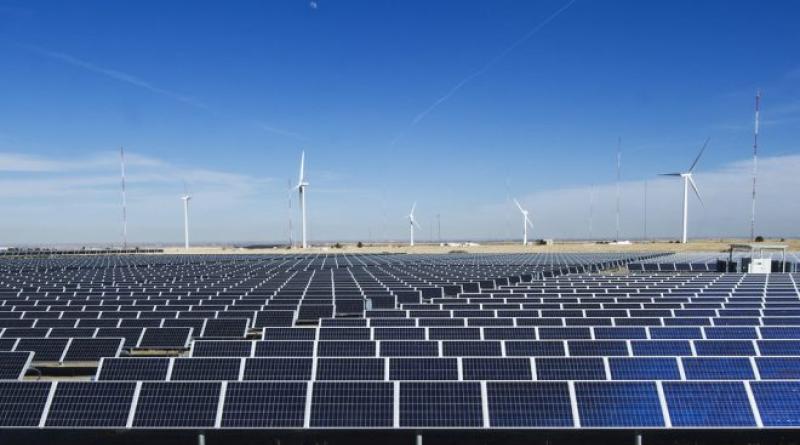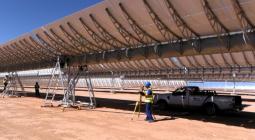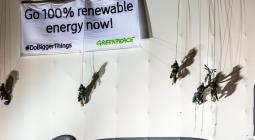Solar, wind, storage set for breakout year thanks to "remorseless" cost reductions

World-wide renewable generation capacity could grow by more than 200 gigawatts this year, thanks to“remorseless reductions in the costs of solar and wind electricity and of lithium-ion batteries,” according to a commentary published earlier this month by Bloomberg New Energy Finance.
The banner year for renewable energy installations will also reflect a “widening realization on the part of investors and corporations that there is this ‘sustainability thing’ and, for reasons of self-interest, they just need to do it,” writes BNEF Chief Editor Angus McCrone.
BNEF expects solar capacity to grow 125 to 141 gigawatts this year, a 14.7 to 29.4% increase over the 109 gigawatts the solar industry installed last year. The agency sees new wind installations surging 30.8% year over year, from 53.5 to 70 GW.
Renewable energy costs are falling fast enough to “make the headline investment figure appear less impressive,” Oilprice.com notes. “BNEF sees total clean energy investment hovering at around US$300 billion, down from 2018’s $332.1 billion. But while investment totals will be down this year, as time marches on and costs continue to fall, every dollar invested brings more renewable energy capacity.”
The analysis points to “eye-catching price drops” that will make offshore wind a “must-have” technology this year, even if it only represents a small proportion of overall installed wind capacity. “Europe is set to install 4.9 GW of offshore wind, with Asia installing 3.5 GW— both new record highs,” Oilprice states. “BNEF says this will be the last year that Europe leads in offshore wind. From here on out, Asia will take over as the global leader.”
BNEF also sees energy storage adding 10 gigawatt-hours of new capacity in 2019 as China moves to “establish a truly global presence” in the storage market. Average battery prices could fall below $150 per kilowatt-hour, down from last year’s record low of $176.
The energy outlook published last Friday by the U.S. Energy Information Administration reinforces the view that solar and wind will continue to grab market share from the country’s rapidly-imploding coal industry. “Boosted by swiftly falling prices, utility-scale solar power is expected to increase by 10% in 2019 and 17% in 2020,” the Cable News Network reports. “Wind power should grow 12 and 14% in those years, vaulting it ahead of hydropower for the first time.”
EIA sees natural gas growing from 35 to 37% of U.S. generation between 2018 and 2020, non-hydro renewables from 10 to 13%.
“Coal is just an expensive technology that can no longer compete,” said Carbon Tracker new energy strategist Kingsmill Bond.
27 January 2019
oilprice.com
![]()




